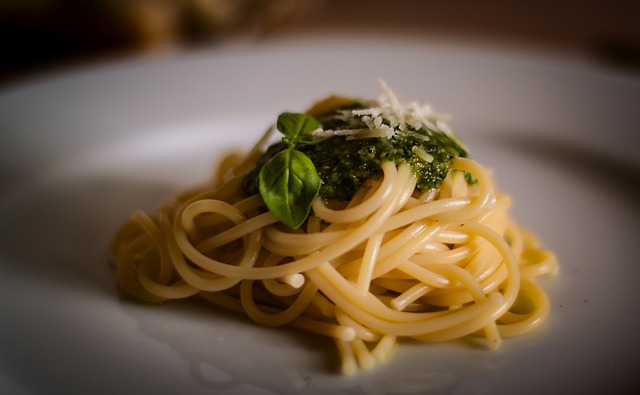Imagine you’re eating a bowl of freshly made pasta in the countryside of Italy at a cozy restaurant where grandma handed down the recipe from her own grandmother to the chef. The local wine complements the meal and the sun begins to set while dinner is prepared. The food arrives to your table, beautifully plated with basil, and you sort of want to immerse your entire face into the deliciousness of the meal.
And then a cockroach drops down from the rafters and into your personal paradise. Right onto the pesto-laden fork.
By all logical standards, your meal is ruined. If the maitre’d were to suggest you simply pluck the cockroach from the plate and continue on, I’m guessing you would demand a refund and head down the street for gelato.
As I heard on a podcast recently, this is negativity dominance. The bad of the cockroach overpowers the good of the pasta, and perhaps even the good of the wine, the sunset, and the entire evening. But why?
Well, cockroaches are gross and humans shouldn’t ingest them. Nor should we ingest anything that a cockroach has put its grubby little feet upon, because they may have walked in poo. These rules about food keep us healthy, and, for our ancestors, alive. “Don’t eat pasta that cockroaches walk in” is solid advice.
But what if that advice has a limited context? What if the badness doesn’t always ruin everything?
Often we approach life as if we have a bowl of pasta and our trials and challenges are cockroaches. We render the entire meal worthy only of the trash if a trace of badness gets into our good.
We have a home, but it gets a leaky roof or the garage door stops working? Total loss. We married a perfectly delightful human, but she refuses to scour the bathtub? Misery. Of course, we don’t regularly give up on big things like houses and marriages because of minor inconveniences, but we do often notice only these things. The goodness in front of us has been tainted with badness and, much like our bowls of pasta, we want to render the whole thing un-stomachable.
In Jesus’ parables, he teaches about things like farming and food. One time he told people that a guy he knew planted a field full of good wheat, but in the middle of the night, the guy he beat in the 100m dash in high school thought he’d take revenge and planted a bunch of weeds in the field. It all started growing at the same time and the farmhands thought maybe they should go out and weed the whole acre. The farmer said, “Nah. We’ll sort that in the barn, after the harvest.”
Jesus said the farmer’s fear was overzealous weeding. “In pulling up the weeds, you might take out some of the wheat.” The bad grows with the good. It doesn’t have to ruin it. We have to let the good continue to grow.
In our efforts at health and generally staying alive, a negativity dominance has been helpful. Yet as it pertains to humanity, I think less dualism – either/or, only/but thinking – might render a more meaningful and satisfying life. Things can be both terrible and wonderful. Normal and holy. A field can have weeds and wheat.
Humans are not static, cooked pasta. We’re dynamic, living beings. Pasta is what it is, changed only by outside forces. Humans grow, often bearing only a faint resemblance to how we began. What might become bad or good is often yet to be determined, so unlike the pasta, we don’t need to throw out what is in front of us – be it that which greets you in the mirror or that which sits across the table – because of blemish or impurity.
Our lives have enough space for the good and the bad: our challenges, struggles and griefs don’t have to render the whole thing to the trash.
